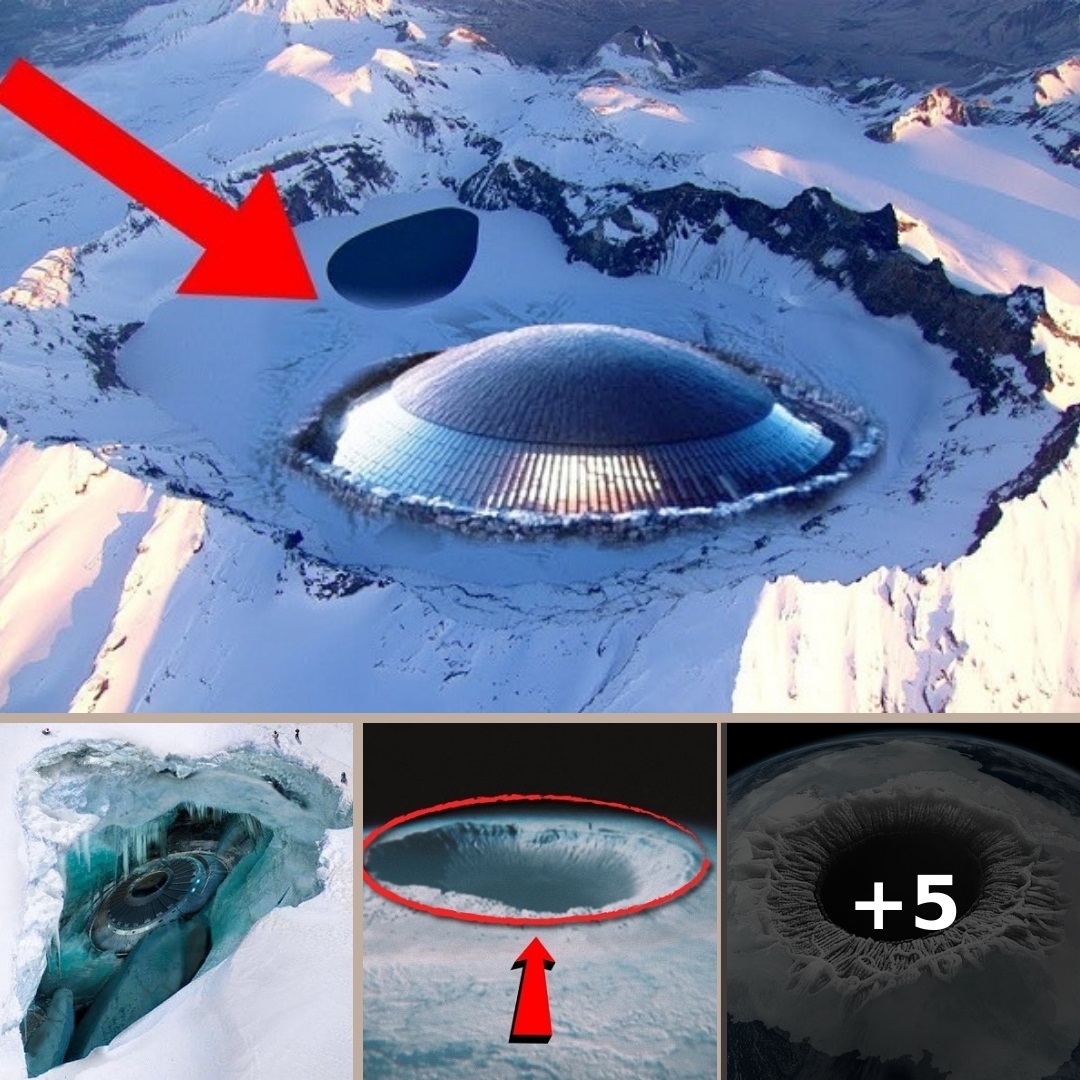In a groundbreaking revelation, scientists have uncovered an ancient, colossal flying saucer hidden beneath the thick ice of Antarctica. This extraordinary find, preserved for thousands of years, has stirred a whirlwind of excitement and speculation across the globe. The discovery, made possible through advanced ice-penetrating radar technology, promises to shed new light on our understanding of ancient civilizations and potentially extraterrestrial life.
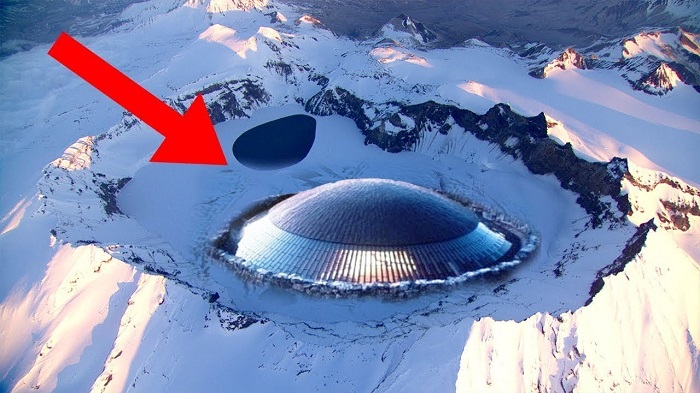
Unearthing the Frozen Enigma
The journey to this monumental discovery began with a team of dedicated researchers from various international institutions. Utilizing cutting-edge radar systems, they meticulously scanned the vast icy expanses of Antarctica. To their astonishment, the data revealed a massive, disk-shaped object buried deep beneath the ice sheets. Measuring approximately 300 meters in diameter, this flying saucer’s symmetrical shape and metallic composition immediately sparked theories of its extraterrestrial origin.
The Ice Age Connection
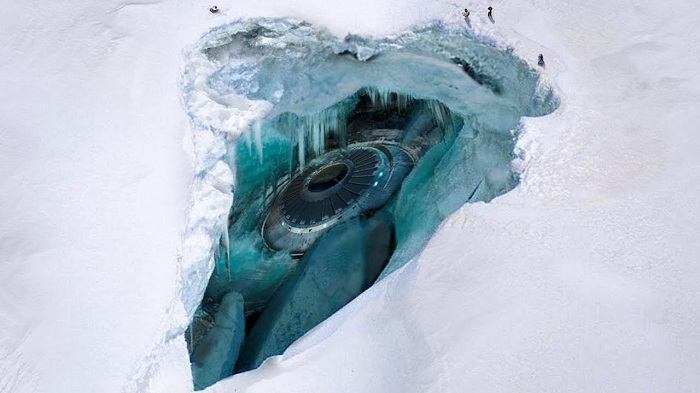
Carbon dating and geological studies indicate that the flying saucer has been entombed in ice for millennia, possibly dating back to the last Ice Age. This timeframe aligns with various ancient legends and myths about celestial visitors and advanced technologies possessed by lost civilizations. Could this discovery provide tangible evidence supporting these age-old stories? The implications are profound, potentially rewriting the history of human civilization and its interactions with otherworldly beings.
Scientific Scrutiny and Speculation
The scientific community is abuzz with theories and debates regarding the flying saucer’s origin and purpose. While some researchers advocate for a cautious approach, emphasizing the need for further analysis and verification, others are eager to delve into the saucer’s potential technological advancements. The prospect of reverse-engineering alien technology has ignited imaginations, with visions of unprecedented leaps in energy, transportation, and communication capabilities.
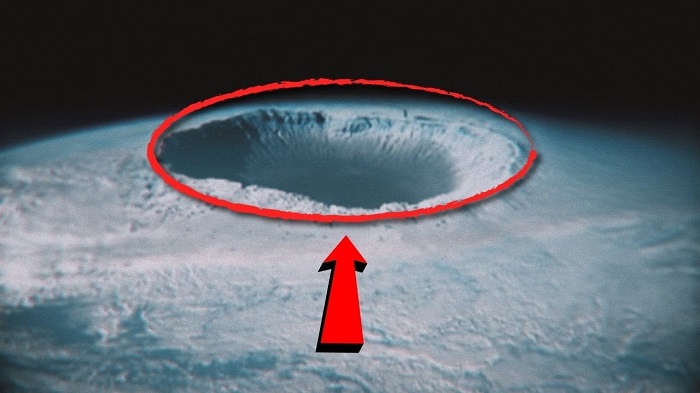
Unveiling the Mysteries
The initial studies have revealed intriguing details about the flying saucer’s structure. Advanced metallurgical analysis suggests the presence of materials not found on Earth, pointing towards an extraterrestrial origin. Additionally, preliminary scans of the interior hint at complex machinery and possible remnants of biological entities. These findings have fueled speculations about the saucer’s purpose – was it a reconnaissance vessel, a transport ship, or perhaps a relic of an ancient interstellar expedition?
Global Implications
The discovery of the flying saucer under Antarctica’s ice has far-reaching implications beyond the realm of science. Governments, scholars, and enthusiasts worldwide are closely monitoring developments, each with their own interests and stakes in this enigmatic find. The potential for international collaboration in uncovering the saucer’s secrets is immense, promising a new era of scientific exploration and cooperation.
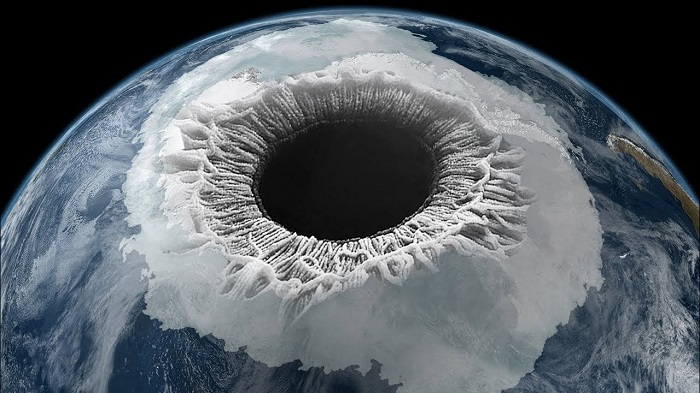
Ethical and Philosophical Considerations
As with any groundbreaking discovery, the unearthing of the Antarctic flying saucer raises profound ethical and philosophical questions. What responsibilities do we bear in handling potentially alien artifacts? How should humanity approach the knowledge and technologies that might emerge from this discovery? These questions urge us to ponder our place in the universe and the broader implications of our actions on a cosmic scale.
The discovery of a giant flying saucer under Antarctica’s thick ice is a monumental event that transcends scientific curiosity. It beckons us to explore the uncharted territories of our past, present, and future. As researchers continue to unlock the secrets of this frozen enigma, one thing is certain – the world will never be the same. This ancient relic, preserved for thousands of years, may hold the key to understanding our place in the cosmos and the mysterious forces that have shaped our history.
